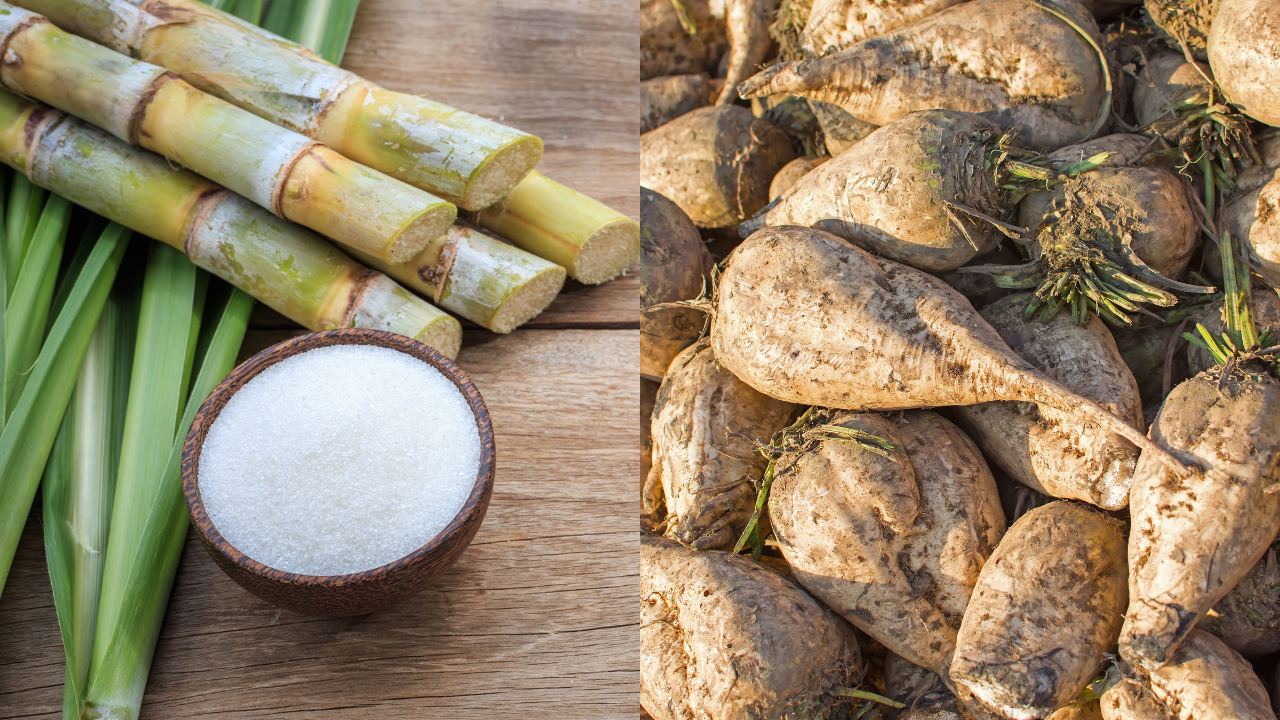The discussion of beet sugar vs cane sugar often includes comparisons of their effect on blood sugar.
The discussion of beet sugar vs cane sugar often includes comparisons of their effect on blood sugar.
Blog Article
Checking Out the Differences being used and Benefits In Between Beet Sugar Vs Cane Sugar
In the cooking globe, the choice in between beet sugar and cane sugar is not just about sweet taste yet involves a nuanced factor to consider of flavor, application, and effect. While both sugars stem from various plants, each undergoes special manufacturing processes that subtly affect their qualities and viability for various recipes.
Origins and Manufacturing Processes of Beet and Cane Sugar

Walking cane sugar, on the other hand, comes from the sugarcane plant, an exotic yard native to Southeast Asia but currently grown in tropical zones worldwide. The production of cane sugar begins with the harvesting of cane stalks, which are squashed to launch the juice. This juice is then boiled to concentrate it, after which it is rotated in centrifuges to generate raw sugar crystals. These crystals are further refined to create the white sugar generally available in stores.

Nutritional Content and Health And Wellness Considerations

When contrasting the dietary material of beet sugar and cane sugar, it comes to be noticeable that both types basically provide the very same calorie worths, with about 16 calories per teaspoon and no substantial nutrient variety. Both sugars, when consumed in excess, can contribute to raised blood glucose levels, a threat variable for diabetes mellitus and other metabolic disorders. From a health viewpoint, regulating intake of any type of sugar, whether from beet or cane, is advisable to avoid these prospective negative results on wellness.
Flavor Accounts and Culinary Applications
Regardless of their comparable chemical structures, beet sugar and cane sugar vary discreetly in taste, which can influence their use in numerous culinary contexts. Walking stick sugar usually carries a hint of molasses, also in its polished form, providing a cozy, caramel-like undertone that enhances baked products, coffee, and chocolate-based dishes. On the various other hand, beet sugar is identified by its highly fine-tuned, neutral preference, making it a functional sweetener that does not alter the flavor accounts of dishes.
Environmental Effect and Sustainability
While both beet and cane sugars are originated from plants, their environmental effects vary significantly because of the distinctive techniques of growing and handling needed for each. Sugar beet growing usually involves substantial automation, which can raise fossil gas usage and carbon exhausts. However, beets can be grown in cooler environments and require less watering, potentially decreasing water usage compared to sugarcane. Sugarcane, on the various other hand, is typically grown in exotic areas where it counts heavily on irrigation and a longer growing duration, raising its water impact.
In addition, the processing of sugarcane commonly produces a considerable amount of waste, consisting of bagasse, which, although usable as biofuel, frequently adds to air pollution if shed inefficiently. Sugar beet find more information handling find out here now uses even more of the raw products, resulting in less waste. Both markets face challenges in reducing their environmental impacts, however recurring advancements in farming practices and waste monitoring are aiming to enhance sustainability.
Economic Variables Affecting the Sugar Market
The economic characteristics of the sugar market are significantly influenced by international market needs and profession policies. In areas where sugarcane or sugar beet manufacturing is subsidized, producers may have a financial advantage that enables them to offer lower costs on the global market.
Furthermore, variations in worldwide need for sugar, affected by dietary trends and industrial usage in food items, straight impact costs and manufacturing levels. beet sugar vs cane sugar. Climate condition likewise play an essential duty, as they can considerably impact crop yields and, as a result, the supply chain. This variability presents a level of economic unpredictability that can result in financial investment volatility in index sugar production industries, influencing decisions from planting to market approach
Verdict
In verdict, both beet and cane sugar have special top qualities that fit various cooking demands. While cane sugar conveys a rich flavor suitable for boosting baked goods, beet sugar's nonpartisanship is ideal for lighter recipes. Nutritional resemblances notwithstanding, their distinct manufacturing processes and environmental impacts add intricacy to the option between them. Thus, understanding these distinctions helps cooks and consumers make informed decisions that straighten with their health, culinary, and honest preferences.
Report this page